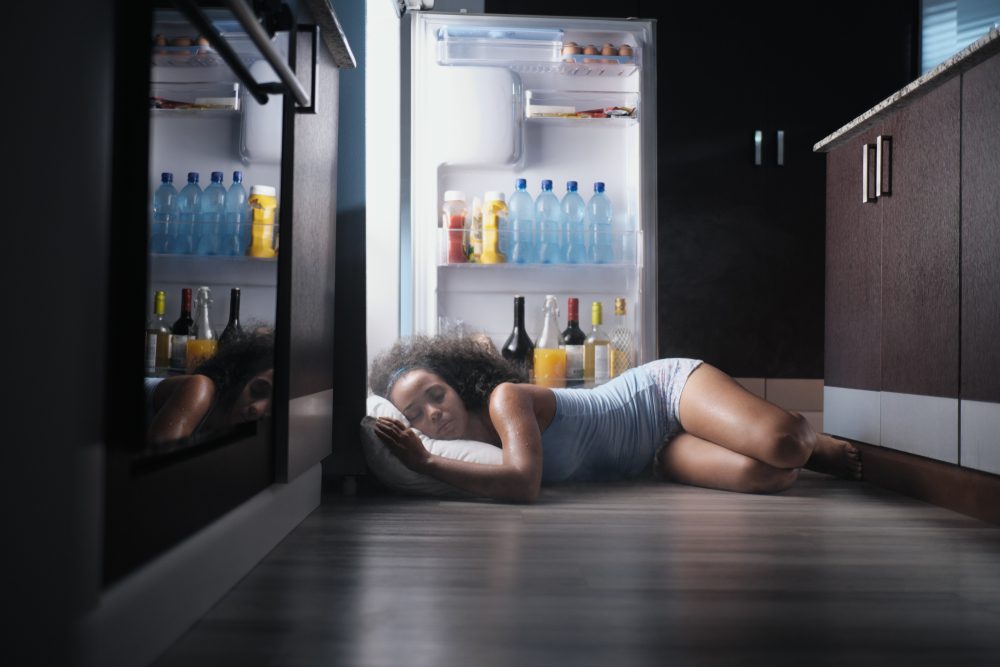Night sweats are more than just bothersome dampness — they’re an unwelcome disruption to peaceful slumber, causing discomfort and unsettling sleep patterns for many. Characterized by excessive sweating during sleep, regardless of ambient temperature, these episodes can stem from underlying health issues or environmental influences. Recognizing the triggers, identifying potential remedies, and knowing when to seek professional advice become crucial in navigating this nocturnal discomfort.
Imagine waking up in the dead of night, sheets soaked, body clammy, and feeling uncomfortably warm or chilled despite the room being adequately cool. This is the disconcerting reality for those experiencing night sweats. Whether it’s the consequence of hormonal imbalances during menopause, an adverse reaction to medication, or an unexplained bodily response, understanding the origins of these episodes is the first step toward finding relief.
In this comprehensive guide, we’ll delve into the causes behind night sweats, explore potential remedies, and highlight when it’s imperative to seek medical guidance. By shedding light on this disruptive nocturnal phenomenon, we aim to empower individuals to manage and minimize the impact of night sweats on their well-being and sleep quality.
What Are Night Sweats?
Night sweats refer to excessive sweating during sleep, leading to damp sleepwear and bed sheets. Unlike sweating caused by a warm room or heavy blankets, night sweats often result in waking up feeling clammy or chilled due to the body’s sudden temperature changes.
Common Causes of Night Sweats:
1. Menopause: Women experiencing hormonal fluctuations during menopause commonly encounter night sweats as a symptom.
2. Infections: Certain infections, such as tuberculosis or endocarditis, can cause night sweats.
3. Medications: Some medications, including antidepressants and hormone therapies, might trigger episodes of night sweats as a side effect.
4. Idiopathic Hyperhidrosis: This condition involves excessive sweating without an identifiable cause and can also manifest during sleep.
Managing Night Sweats
Lifestyle Changes:
– Cool Sleeping Environment: Maintain a cool room temperature and use breathable bedding to minimize the discomfort caused by night sweats.
– Light Clothing: Wear lightweight, moisture-wicking sleepwear to assist in temperature regulation.
– Avoid Triggers: Identify and avoid potential triggers such as spicy foods, caffeine, or alcohol before bedtime.
Medical Interventions:
– Hormone Therapy: For menopausal women experiencing severe symptoms, hormone therapy may be recommended after consulting with a healthcare professional.
– Medication Adjustment: If night sweats are a side effect of certain medications, consulting with a doctor about alternatives or dosage adjustments could alleviate the symptom.
When to Seek Medical Advice:
While occasional night sweats might not warrant immediate concern, consulting a healthcare professional is recommended if:
– Night sweats occur regularly and disrupt sleep.
– Sweating is accompanied by unexplained weight loss or fever.
– Night sweats are severe and not improving with lifestyle changes.
In the realm of nocturnal disturbances, night sweats stand as an often perplexing and uncomfortable occurrence. Yet, understanding their potential significance as indicators of underlying health conditions empowers individuals to navigate them effectively. Lifestyle modifications, from optimizing sleeping environments to identifying triggering factors, frequently provide relief.
Nevertheless, persistent or severe night sweats warrant a deeper investigation. Consulting a healthcare professional becomes imperative when these episodes persist or present alongside other concerning symptoms. This proactive approach not only unravels potential underlying health issues but also ensures appropriate treatment measures are undertaken.
In essence, while night sweats can disrupt sleep and induce discomfort, they’re often manageable with conscientious adjustments. By proactively addressing triggers and seeking professional guidance when needed, individuals can significantly mitigate the impact of night sweats on their overall well-being and sleep quality. Remember, your well-being matters, and addressing persistent night sweats is a proactive step toward safeguarding your health and securing restful nights.
This story was created using AI technology.
















